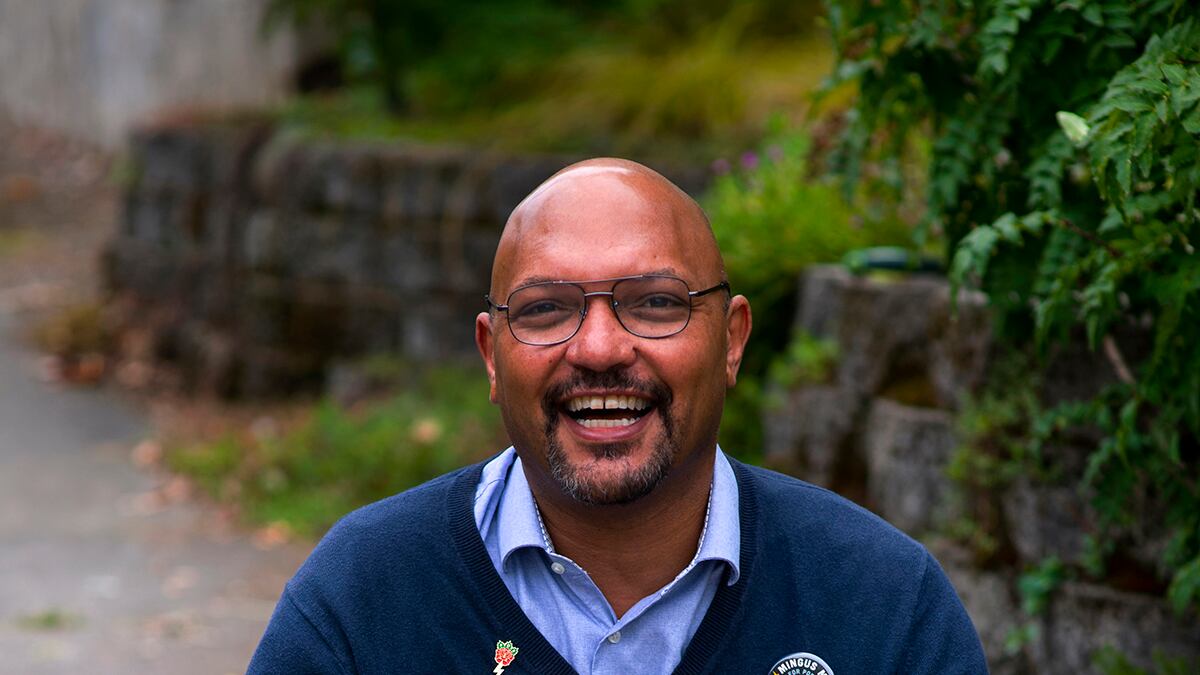Portland City Commissioner Mingus Mapps won office by contrasting himself against the incumbent, then-Commissioner Chloe Eudaly. Now he has the job—and a lot more sympathy for her.
“One of Eudaly’s challenges in this job is that you take a lot of criticism no matter what you do, and how you respond to that is quite challenging,” Mapps says. “So if you just open the headlines and see that the commissioner was grumpy today, I always had some context for that, but I also just really see, now that I’m here, what an emotionally demanding job that is. I certainly have more sympathy for her today than I did even six months ago.”
Mapps’ campaign for City Council rested in part on the idea that he would be more open to criticism and dissenting views than Eudaly was. Now he’s getting blowback of his own—especially for voting against a citywide expansion of Portland Street Response, a mental health crisis team designed to reduce police interaction with people in distress.
We talked with Mapps about that vote in this week’s episode of the Dive podcast. Here are a few of the most revealing moments from that interview.
Mapps says he wants Portland Street Response expanded citywide—but thinks doing that now would end poorly. “Portland Street Response really is the future of emergency response here in Portland. It’s a complicated system, though, and people don’t really appreciate that. What actually happened during the budget crisis is, there’s this proposal to rapidly expand the rate at which we roll out Portland Street Response. And I want to do that too.…One of the things I won’t do is do this in a sloppy way so that it does not work.”
He says a new food cart pod on Southwest Ankeny Street will be better than the iconic pod replaced by a luxury hotel. “That’s a shame. The good news is, I’ve seen the plans, I’ve seen the drawings, and it’s gonna be really great.”
Mapps was racially profiled so often as a young man, he still feels anxiety entering malls. “You can’t be a Black man in America without being racially profiled. My entire youth, as I walked down the streets, people would lock their car doors and clutch their purses. I still have some personal anxieties about going into malls because as a younger person, when I would go into a mall, like I basically had my own security guard escort about 10 paces behind me.”
Want to hear the whole interview?
Listen on Spotify.
Listen on Apple Podcasts.
